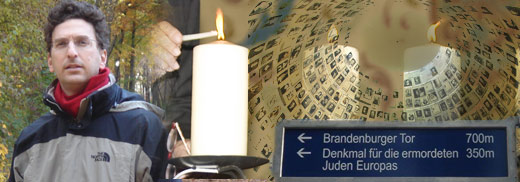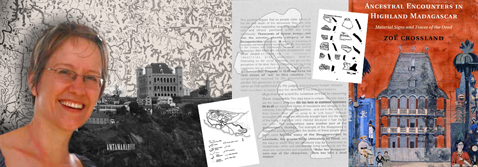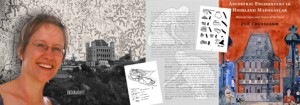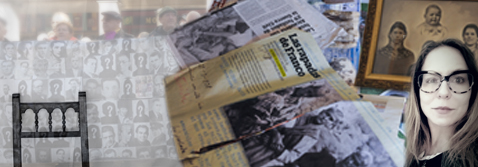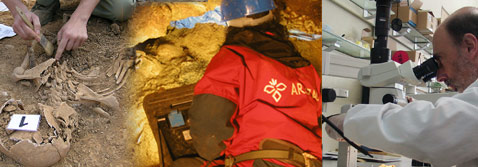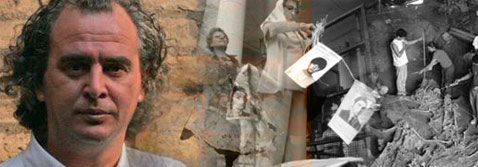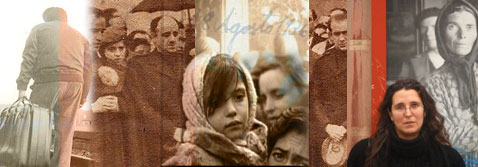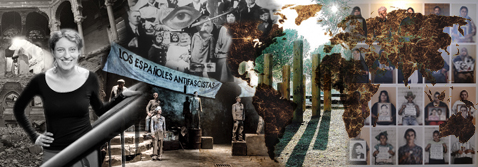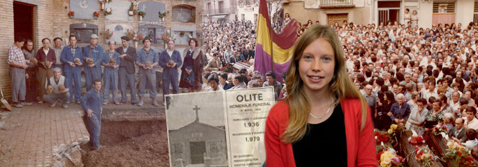Francisco Ferrándiz Martín

Francisco Ferrándiz (PhD University of California at Berkeley, 1996) is Associate Researcher in the Institute of Language, Literature and Anthropology (ILLA) of the Center for the Humanities and Social Sciences (CCHS) at the Spanish National Research Council (CSIC). His research in the anthropology of the body, violence and social memory encompasses two main ethnographic objects: the spiritist cult of María Lionza in Venezuela and, since 2003, the politics of memory in contemporary Spain, through the analysis of the current process of exhumation of mass graves from the Civil War (1936-1939). Before being hired at CSIC, he has taught and conducted research at the University of California at Berkeley, the University of Virginia, the Central University of Venezuela (UCV), the University of Utrecht, the Autonomous University of Morelos (UAEM), the University of Deusto and the University of Extremadura. He is the author of Escenarios del cuerpo: Espiritismo y sociedad en Venezuela (2004), and co-editor of The Emotion and the Truth: Studies in Mass Communication and Conflict (2002), Before Emergency: Conflict Prevention and the Media (2003), Violencias y culturas (2003), Jóvenes sin tregua: Culturas y políticas de la violencia (2005), Multidisciplinary Perspectives on Peace and Conflict Research (2007), and Fontanosas 1941-2006: Memorias de carne y hueso (2010), among others.
Main publications:
Books (as author):
- 2018 (Bajo contrato. Fecha prevista de publicación). Bare Bones: Civil War Exhumations in Contemporary Spain. Philadelphia: University of Pennsylvania Press
- 2014. El pasado bajo tierra: Exhumaciones contemporáneas de la Guerra Civil. Barcelona: Grupo Editorial Siglo XXI/Anthropos
- 2011. Etnografías contemporáneas: Anclajes, métodos y claves para el futuro. Barcelona: Grupo Editorial Siglo XXI/Anthropos/UAM Iztapalapa
- 2004. Escenarios del cuerpo: Espiritismo y sociedad en Venezuela. Bilbao: Universidad de Deusto
Books (as co-editor and/or co-author):
- 2015. & A. Robben A. Necropolitics: Mass Graves and Exhumations in the Age of Human Rights. Philadelphia: University of Pennsylvania Press
- 2015. & J. A Flores, M. García Alonso, J. López García y P Pitarch Manuel Gutiérrez Estévez: Maestro de etnógrafos (americanistas). Madrid: Iberoamericana-Vervuet
- 2014. & M. Hristova, L. Douglas y Z. De Kerangat Faces and Traces of Violence: Memory Politics in Global Perspective. Número Especial de la revista Culture and History Digital Journal 3(2) (CSIC)
- 2012. & Solé Q. Desenterrando el silencio: Antoni Benaiges, el maestro que prometió el mar. Barcelona: Blume
- 2011. & A. Leizaola y M. García Alonso Etnografías contemporáneas de las violencias políticas: Memoria, olvido, justicia. León: FFAAEE/Michael Kenny
- 2010. & J. López García Memorias de carne y hueso: Fontanosas 1941-2006. Ciudad Real: Diputación de Ciudad Real
- 2009. & R. Hudson y W. Bender Peace, Conflict and Identity: Multidisciplinary Approaches to Research. Bilbao: HumanitarianNet/ Deusto University Press
- 2007. & A. Robben Multidisciplinary Perspectives on Peace and Conflict Research. Bilbao: HumanitarianNet/ Universidad de Deusto
- 2006. & C. Feixa Tierra quemada: Violencias y culturas en América Latina. Número especial de la RevistaNueva Antropología, n65 (Colegio de México, México D.F.)
- 2005. & C. Feixa Jóvenes sin tregua: Culturas y políticas de la violencia. Barcelona: Anthropos
- 2003. & J. M. Pureza Before Emergency: Conflict Prevention and the Media. Bilbao: HumanitarianNet/Universidad de Deusto
- 2003. & C. Feixa Violencias y culturas. Barcelona: FAAEE/ICA
- 2002. & M. Aguirre The Emotion and the Truth: Studies in Mass Communication and Conflict. Bilbao: HumanitarianNet/ Universidad de Deusto
Articles and chapters of books (of the last 3 years):
- 2017 (En prensa) “Death on the Move: Pantheons and Reburials in Spanish Civil War Exhumations”. En A Companion to the Anthropology of Death. Ed. por Antonious C.G.M. Robben. Oxford: Wiley-Blackwell
- 2017 (En prensa) “Unmaking Militarism Spanish Style: Engaging the Civil War Legacy”. Current Anthropology, número especial Cultures of Militarism, editado por Catherine Besteman y Hugh Gusterson
- 2017 (En prensa) & A. Robben “The Transitional Lives of Crimes against Humanity: Forensic Evidence under Changing Political Contexts”. En Bodies of Evidence: Anthropological Studies of Security, Knowledge and Power. Ed. por Mark Maguire, Ursula Rao and Nils Zurawski. Durham: Duke University Press
- 2017 (En prensa)“Exhumaciones de fosas comunes y políticas de victimización”. En Víctimas políticas en España y Europa. Ed. por Gérôme Truc. Madrid: Casa de Velázquez
- 2016 “Afterlives: Tracing Exhumed Bodies beyond the Mass Grave”. En Legacies of Violence in Contemporary Spain: Exhuming the Past, Understanding the Present. Ed. por Ofelia Ferrán y Lisa Hilbink. Nueva York: Routledge
- 2016 & E. Silva “From Mass Graves to Human Rights: The Spanish Disappeared in a Transnational Context”. En Missing Persons: Multidisciplinary Perspectives on the Disappeared. Ed. por Derek Congram, pp. 74-101. Toronto: Canadian Scholar’s Press Inc.
- 2016 “From Tear to Pixel: Political Correctness and Digital Emotions in the Exhumation of Mass Graves from the Civil War”. En Engaging the Emotions in Spanish Culture and History (18th Century to the Present). Ed. por María Elena Delgado, Pura Fernández y Jo Labanyi, pp. 242-261. Nashville: Vanderbilt University Press
- 2016 & P. Aguilar “Historical Memory, Media and Spectacle: Interviú and the Portrayal of Civil War Exhumations in the Early Years of Spanish Democracy”. Journal of Spanish Cultural Studies 17(1): 1-25
- 2015 “Exhumar la derrota”. En Políticas de memoria y construcción de ciudadanía. Ed. por A.Jerez y E. Silva, pp. 255-263. Madrid: Postmetrópolis Editorial
- 2015 “Mass Graves: A Spanish Tale”. En Necropolitics: Masss Graves and Exhumations in the Age of Human Rights. Ed. Por F. Ferrándiz y A. Robben, pp. 92-118. Filadelfia: University of Pennsylvania Press
- 2015 & A. Robben “The Ethnography of Exhumations”. En Necropolitics: Masss Graves and Exhumations in the Age of Human Rights. Ed. por F. Ferrándiz y A. Robben, pp. 1-38. Filadelfia: University of Pennsylvania Press
- 2015 “Ethnographies on the Limit: Ethnographic Versatility and Short-Circuits before Contemporary Violence”. Etnologia (Revista d’Etnologia de Cataluya) 40: 47-50

